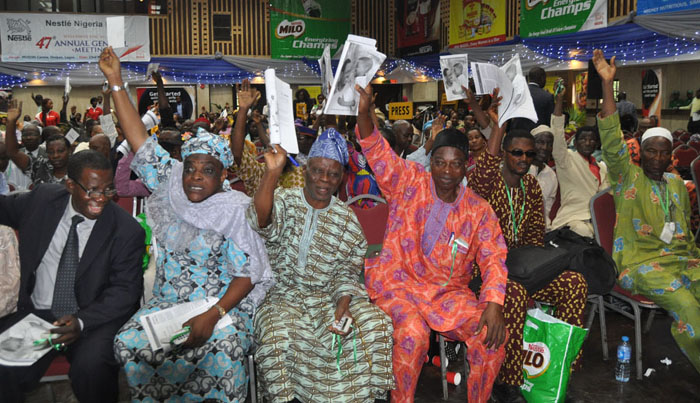Unclaimed Dividend is one challenge that has defied several efforts by successive administrations at the Securities & Exchange Commission (SEC), especially as part of the 10-Year Capital Market Master Plan driven intensively by Ms. Mary Joseph Uduk as acting Director-General. This report argues that the Federal Government may have, with the connivance of the Senate, succeeded in taking over managing the Trust Fund when the Bill is signed into law. However, it may just be solving a problem by creating a new one while merely changing the beneficiaries and creating a new fiefdom.
It was the late Fela Anikulapo Kuti who lamented that he had crooned about Nigeria’s corruption, inflation, mismanagement, stealing by government, et Cetera, following which they had become “old (stale) news.”
After the litany of woes, he laments further: “I don sing say the problem still dey paparapa (has become intractable).”

This may just be the story of the Unclaimed Dividend conundrum that has plagued the Nigerian capital market for decades, with the government unwilling to back down this time around, after chickening out of its resolve to lay hands on the seemingly free pool of funds with doubtful ownership in the past.
Rather than bring it as a standalone bill, as the Securities & Exchange Commission (SEC) attempted in the past with its Unclaimed Dividend Trust Fund Bill, the Muhammadu Buhari administration lumped it with its 2020 Finance Bill.
To show the importance attached to the Bill, as a matter of urgent national importance, the Nigerian Senate, on Tuesday, December 15, barely 20 calendar days after President Muhammadu Buhari transmitted it for consideration and passage on November 25, it was passed by the Senate. This followed the consideration of a report by the Joint Senate Committee on Finance; Customs, Excise & Tariff; Trade and Investment; and Public Procurement.
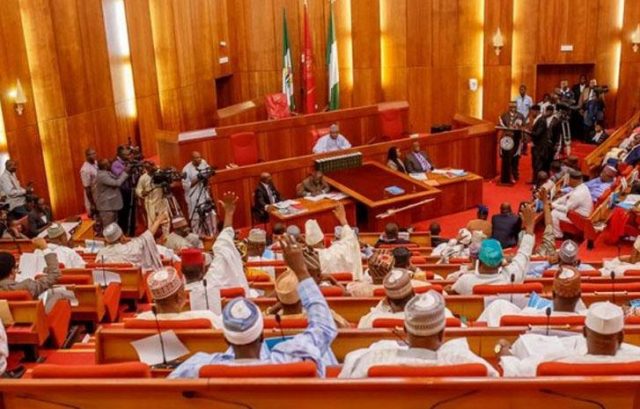
The speedy passage was despite the fact that the Finance Bill 2020, now awaiting ascent, lumped the Unclaimed Dividend Funds Trust provision; with amendments of 16 key legislations including: the Companies and Allied Matters Act (2020); Fiscal Responsibility Act; and Public Procurement Act. Other areas amended included: the Capital Gains Act; Companies Income Tax Act; Industrial Development (Income Tax Relief) Act; Personal Income Tax Act; Tertiary Trust Fund Act; Customs and Excise Duties Tariff; Value Added Tax Act; Stamp Duties Act; and Electronic Transaction Levy. Also amended in the Bill were: Federal Inland Revenue Service (Establishment) Act; Nigeria Export Processing Zone Authority Act; Oil and Gas Export Processing Zone Act; Crisis Intervention Fund.
Funding Nigeria In 2021
For now, details of the Finance Bill 2020, especially as it relates to the takeover of the “Unclaimed Dividends & Balance Trust Fund,” which is aimed at creating “an Unclaimed Dividend and Unutilized Bank Balance Trust Fund, wherein dividends declared and unclaimed would be warehoused,” is still hazy.
However, those who know, fear that this may be a prelude by a government, pressed by revenue shortfalls and rising expenditure but unwilling to plug its yearning gorges dug by unbridled corruption, to eventually lay its hands on funds in dormant accounts held over the years by banks in the country.
Recall that the government needs so much funds it can get from anywhere to finance the N13.58tr 2021 budget, with Fiscal deficit amounting to N5.6tr; new borrowings, N4.28tr (including Foreign and Domestic Borrowing); Statutory Transfers, N484.4bn; and Debt Service, N3.12tr. Total Recurrent (Non-Debt) component of the budget stood at N5.66tr.
Semantics
As one capital market stakeholder told our correspondent in confidence, the government did “not want to say dormant accounts, hence the use of Unclaimed Balances with banks, which will end up being interpreted by CBN as dormant accounts.”
Previous administration, “have tried to do this in the past, and were resisted, but with the backing of the law, they will desperately want to push it through this time.”
Perhaps, to make it attractive to shareholders, the amendment provides that the unclaimed dividend is “owed as a perpetual debt to shareholders.”
Statute Bar
The Bill seeks to correct an anomaly under the CAMA, which extinguishes shareholders’ right to dividend declared after 12 years when the money is returned to the company for operations and redistribution to other shareholders.
Specifically, the Federal Government mooted the Unclaimed Dividend Trust, subject to Section 44(1) and (2)(h) of the constitution of the Federal Republic of Nigeria, 1999 (as amended), wherein any unclaimed dividends of a public limited liability company quoted on the Nigerian Stock Exchange or other such stock exchange, which has remained unclaimed for a period of not less than three years from the date of declaring the dividend.”
Such fund “shall be transferred immediately to the Unclaimed Dividends Trust Fund, provided that the unclaimed dividends that have been transferred to the reserves of the company having remained unclaimed for more than two years before the commencement of this Act shall so remain transferred in the company’s reserves.”
The government further proposes that such monies shall be transferred by the company or registrar to the Trust Fund to be governed by a “council chaired by the Finance Minister and co-chaired by a person from the private sector who shall be a qualified person of irreproachable integrity such as to render the person a fit and proper persons to serve in the capacity, as may be appointed by the President on the recommendation of the Finance Minister.”
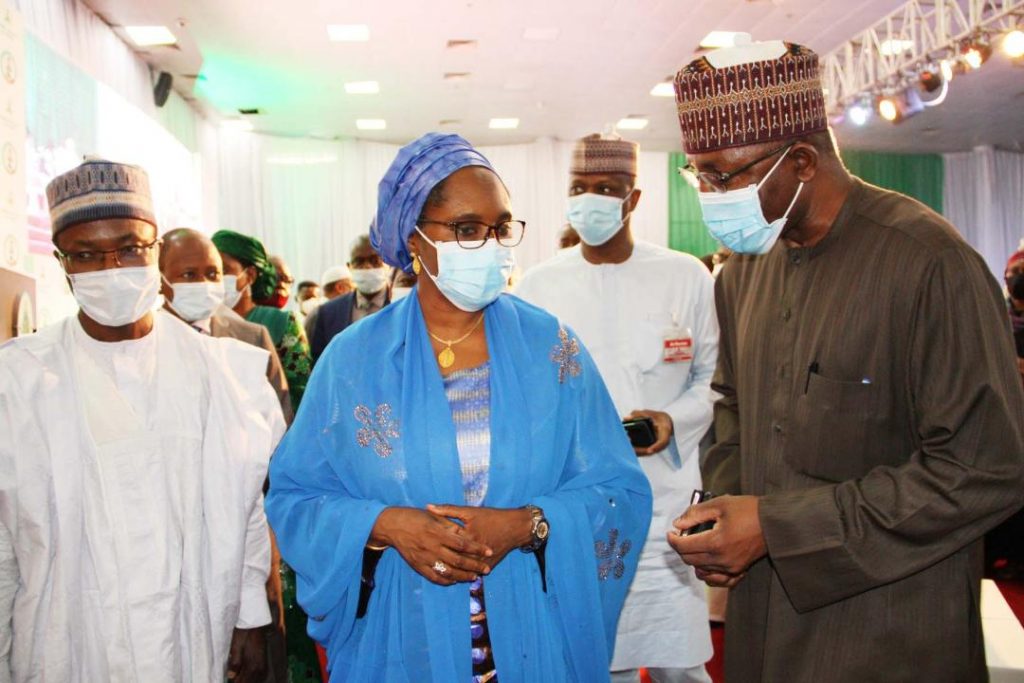
The secretariat of the fund is to be domiciled in the Office of the Accountant-General of the Federation/Debt Management Office, while the AGF/DG of the DMO shall operate the fund with the Central Bank of Nigeria (CBN).
Furthermore, it is proposed that all companies on the NSE “shall render annual return of unclaimed dividend in a format prescribed by the office of t he AGF; All such unclaimed dividend that has remained so for “not less than 12 years shall lapse into government revenue and shall be transferred from the Unclaimed Dividend Trust Fund into the Federation Account as Federation Revenue.”
Accessing The Fund
The Bill now waiting for Presidential assent, further proposes that “subject to the approval of the Minister (Finance), on the recommendation of the AGF, established claims to unclaimed dividends that have not lapsed to the Revenue Account shall be recognized and such dividends shall be paid to rightful owners from the unclaimed Dividend Trust Funds.”
The law also proposes that the Accountant General of the Federation shall prepare and submit the financial statement of the UDTF to the Office of the Auditor General of the Federation (OaGF) for audit.
“Failure by any coy to transfer the Unclaimed Dividend to the Trust Fund shall constitute an offence under this Act and the company shall be liable upon conviction, to a fine of not less than five times the value of the Unclaimed Dividend and accumulated interest on the Unclaimed Dividend at the CBN’s Monetary Policy Rate.
“This section 39 shall apply notwithstanding the provision of Section 429, Section 432 or other relevant Sections of Part 16 of the CAMA, 2020 or the relevant provisions of any other applicable laws,” the Act noted.

According to 429(1), where dividends paid by a company remain unclaimed, it shall publish in two national newspapers; a list of the unclaimed dividends and names of the persons entitled to the dividends, and attach the list, as published in the national newspapers, to the notice that is sent to the members of the company for each subsequent annual general meeting of the company.
After three months of the publication and notice, the company is at liberty to “invest the unclaimed dividend for its own benefit in investments outside the company and no interest shall accrue on the dividends against the company.
”Where dividends have been sent to members and there is an omission to send to some members due to the fault of the company, the dividends shall earn interest at the current bank rate from three months after the date on which they ought to have been posted.
“For the purpose of liability, the date of posting the dividend warrant is deemed to be the date of payment and proof of whether it has been sent is a question of fact.
Section 432 (1) defines dividends as “special debts due to and recoverable by shareholders within 12 years, and actionable only when declared.
Thereafter, the dividend shall be included in the profits that should be distributed to the other shareholders of the company
Our Worry- SEC
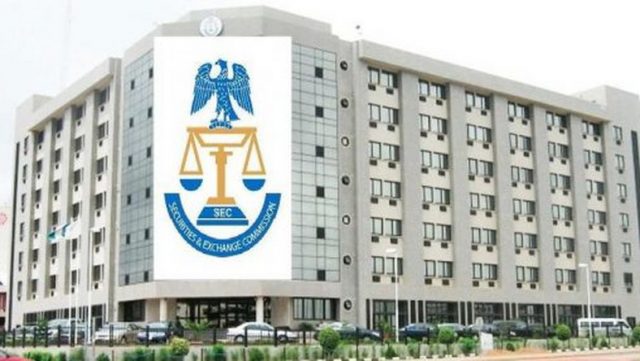
While assuring that it is not opposed to the provisions of the Bill as it relates to the Unclaimed Dividend and Balances Trust Fund, Lamido Yuguda, Director-General of the SEC Nigeria, said the commission’s only concern is with the governance structure, hence the call for its reconsideration.
He told the Senate during the public hearing for the Bill that the commission wants a “modifications of the provisions with regards to management and governance of the trust fund to avoid possible harm to the capital market which is still struggling to survive.
“SEC, being the capital market regulator and mandated by the Investments and Securities Act to protect the interest of the investors, to be the one to administer or to manage or to supervise the operations of that fund, that is what we are requesting”.
The commission’s ultimate objective, he continued, is to pool unclaimed dividends into a well-structured and well governed Fund with independent management under the existing National Investor Protection Fund (NIPF) as found in other jurisdictions like Kenya and India.
He stressed that, alternatively, the unclaimed Dividends Trust Fund could be set up as an independent Fund to be Managed by the private sector (Professionals Fund Managers) under the supervision of the Commission.
All that may now be history.
Leaps And Bounds
According to data sourced from media reports, in the absence of records on the website of the capital market police- the Securities & Exchange Commission (SEC), apart from its announcements, Unclaimed Dividend has grown from N2.09bn in 1999; first to N5.1bn in 2002, rising to N17.9bn by the end of 2008. At the end of 2010, the figure leaped to N44bn; N60bn in 2012; N109bn four year later; N130bn at the end of 2018; N158.44bn by last year; even as unconfirmed sources say the figure jumped to N170.5bn
Babangida Ibrahim, Chairman, House of Representatives Committee on Capital Markets and Institutions, recently expressed fear that the value of Unclaimed Dividend may close this year at over N200bn.
Speaking at an investigative public hearing on the “Need to Investigate the Rising Value of Unclaimed Dividends, Unremitted Withholding Tax on Dividends and their Attendant Effects on Nation’s Economy,” Ibrahim said the projection was not in the best interest of the market and its participants.
The huge accumulated unclaimed dividends, he continued, is a major challenge to the development of the Nigerian Capital market, as it had lingered for so long despite the best efforts of market regulators.
The huge volume of unclaimed dividends, he warned, could adversely affect investor confidence; decrease the availability of long-term capital for economic development, and likely trigger volatility in the regulation of the capital market.
N29bn Paid Out
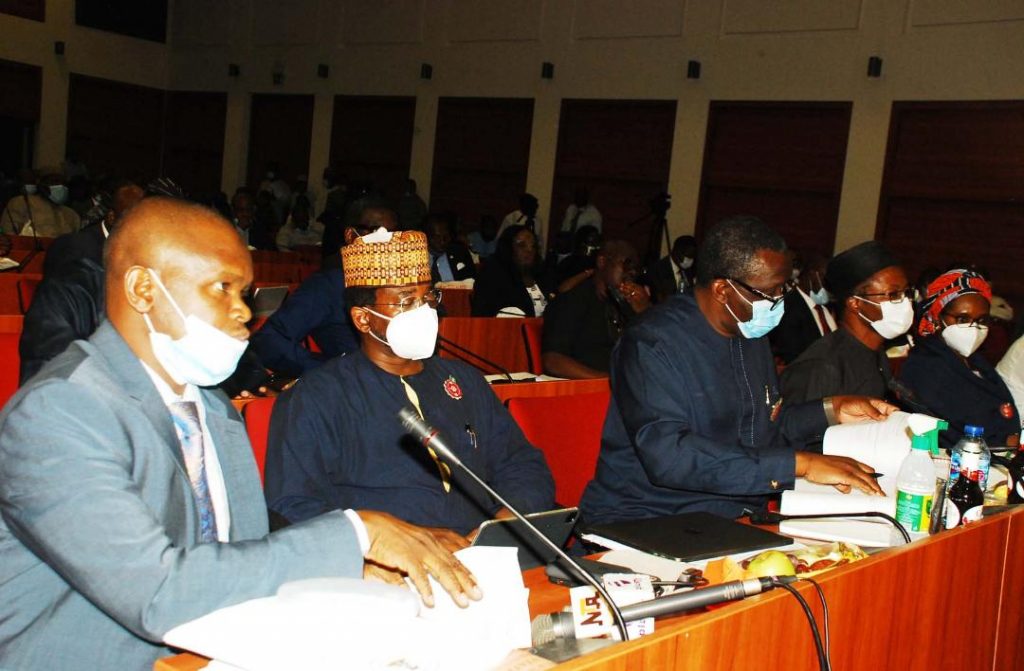
The SEC DG, however told the investigative public hearing, of how about N29bn of the previously unclaimed dividends have already been paid to investors with the opportunity for shareholders to regularize their multiple accounts. The commission had in 2015 requested all shareholders with multiple accounts to harmonize them by filling e-dividend mandate forms, he stressed, adding that it was also making efforts to verify and isolate account beneficiaries, before end of the 2021Q1, as part of ending the unclaimed dividends menace.
“Some of these initiatives are the creation of a rule requiring Registrars to make electronic payments of dividends directly into shareholders’ accounts, and engagement with the probate registry to improve the process of obtaining and administering probate,” he added.
Govt’s Plan Vs. Moral Hazard
There are those who agree with the government’s plan to manage the Unclaimed Dividends and dormant bank accounts.
One of them is Uche Uwaleke, Professor of Capital Market Studies at the Nasarawa State University, who believes that allowing the companies that declared the dividends to keep them at the end of a statutory period amounts to a moral hazard.
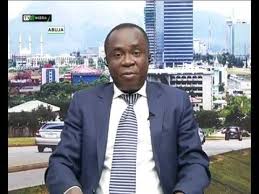
In a keynote presentation on the topic “the capital market in post COVID-19 Nigerian economy,” at the 2020 annual conference of the Capital Market Association of Nigeria (CAMCAN), Uwaleke said the fact that the funds would eventually revert to these companies is enough motivation for them to continue growing it to the detriment of shareholders.
This seems to sync with the suspicion by stakeholders who accuse public companies of conniving in the unclaimed dividend debacle, because the unclaimed funds are turned to working capital, contrary to provisions of the Companies & Allied Matters Act (CAMA) that it should be invested outside the organisation. This, they say, helps to distort the actual financial positions of these firms.
In the same way, Uwalaka continued, for as long as deposit money banks are allowed to keep, and continue trading with monies held in dormant accounts, “they (the banks) will do all in their power to ensure you don’t get it (money in the dormant accounts).”
The government’s proposal, he believes, “is in line with what happens in other jurisdictions,” and part of what is called unclaimed assets in countries like the UK, US, among others.
“Some states in the US takes over any such assets after a dormancy period.
“(The aspect of the proposal) I don’t support is bringing in the AGF (Accountant General of the Federation) to manage the pool.
“I think the stakeholders should be brought into its management,” he said in response to a question.
Writing in Investdata News on November 16, Victor Ogiemwonyi, a Lagos-based investment banker argued that it is likewise a moral hazard for government that did not invest to benefit from the Unclaimed Dividend anomaly.
For him, setting up a Trust Fund is another opportunity for wasteful spending, with the possible creation of another parastatal with directors for whom SUVs will be bought, spending money without adding any value, just as in the case of the Asset Management Corporation of Nigeria (AMCON).
“The Unclaimed Dividends have owners and the companies which paid them are the best place to put the money into productive activities. It also aligns with the intention of the original investors to put their monies with the companies who will use them and pay them dividends.
“When the money reverts to the companies, it will go into their reserves for the benefit of shareholders. This will be additional profits in their general Reserves yet to be declared as dividends in their books and owner-shareholders can make a claim at any time from the company directly when they realize they have unclaimed dividends. It will benefit the companies and their shareholders as it should.
Another Job For The Boys?
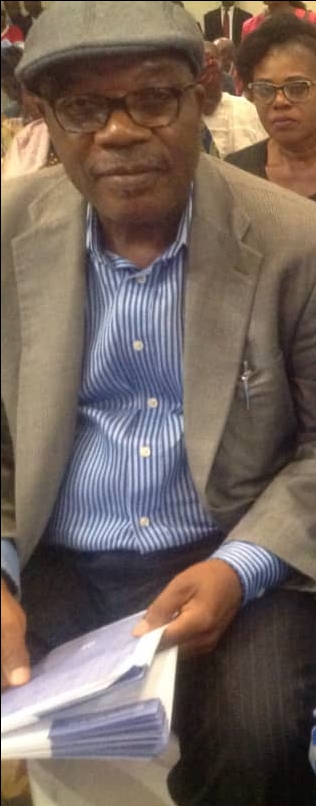
Investdata recalls that part of the reasons adduced for shareholders’ opposition to the previous efforts leading to the 2006 rejection of the SEC-sponsored Bill by the National Assembly on the allegation that it is an attempt to create “job for the boys” by the Federal Government.
Indeed, as Sunny Nwosu, founding National Coordinator of ISAN, argued at the time, “the money involved is not public money but private investors’ money. Government does not respect private sector’s money, so we believe it will be mismanaged.”
It is also important to note that the Unclaimed Dividend Trust has seemingly been taken outside the regulatory purview of the SEC Nigeria and placed within the Finance Ministry bureaucracy, brushing aside protest from the recognized capital market police.
Investdata also notes that the fund is now being made perpetual, in which case there is no sunset envisaged for now, which means the times ahead will be interesting as the government begins implementation of the fund, including unclaimed deposits, some of which are old as five decades, or more. How the scenario will play out is of interest to all stakeholders.
This research/investigation/story was supported by the US Embassy via the ATUPA Fellowship by Civic Hive.


